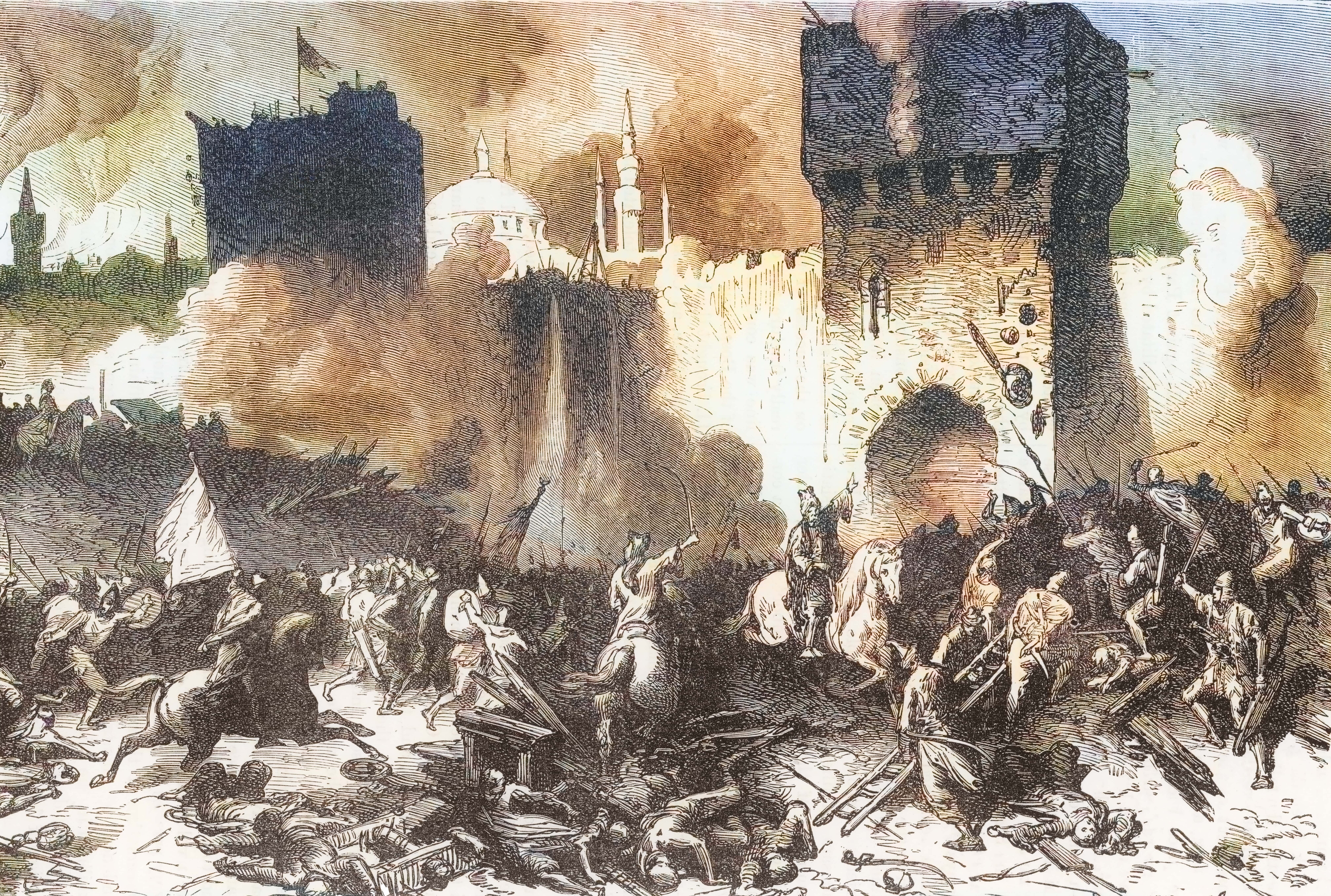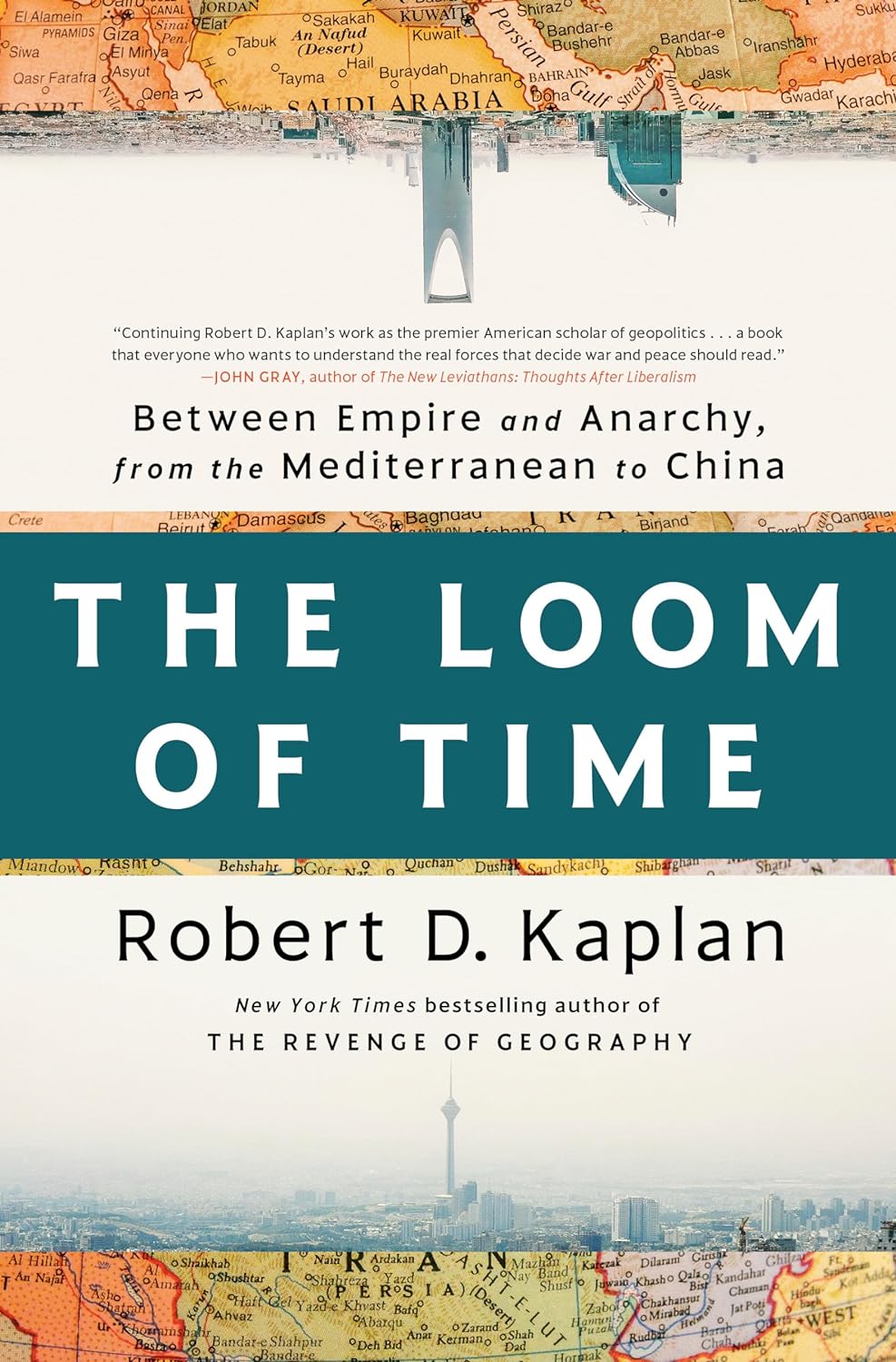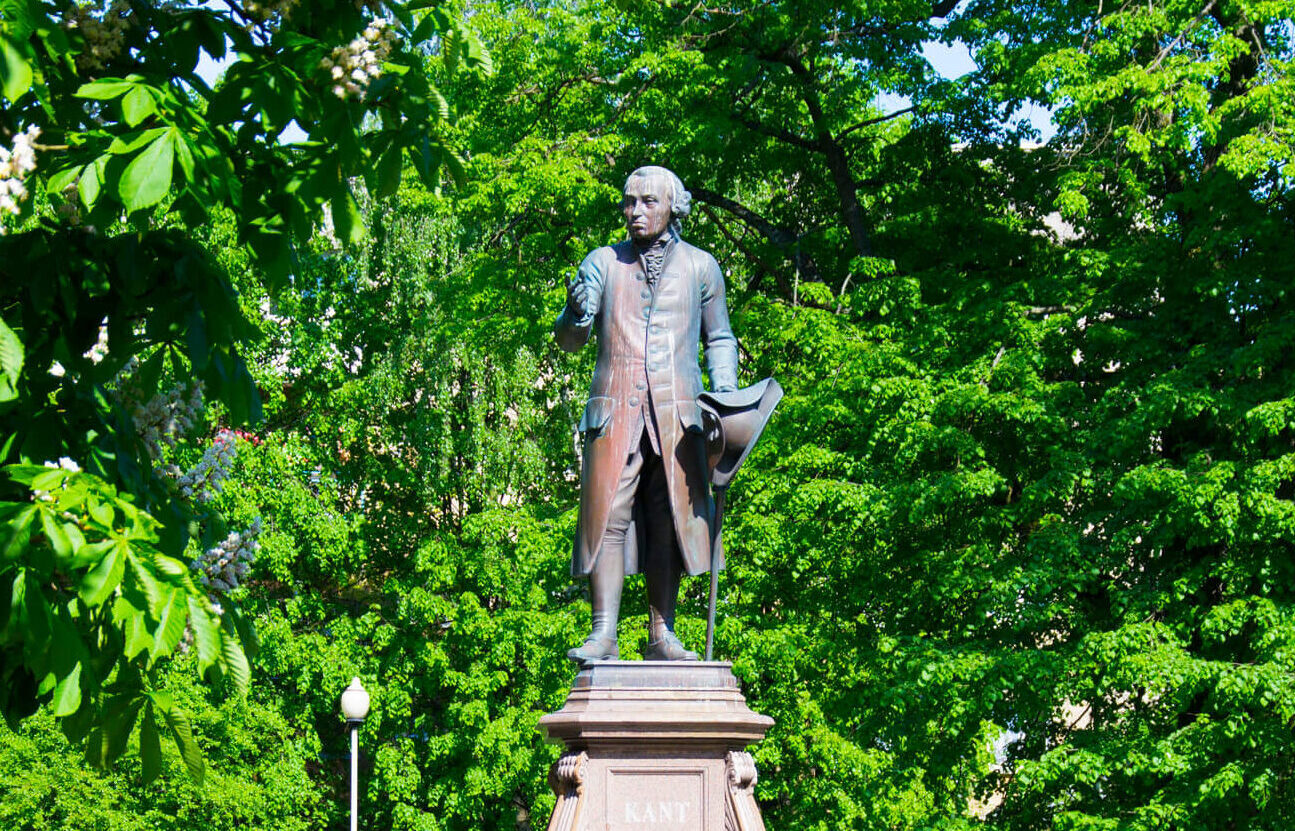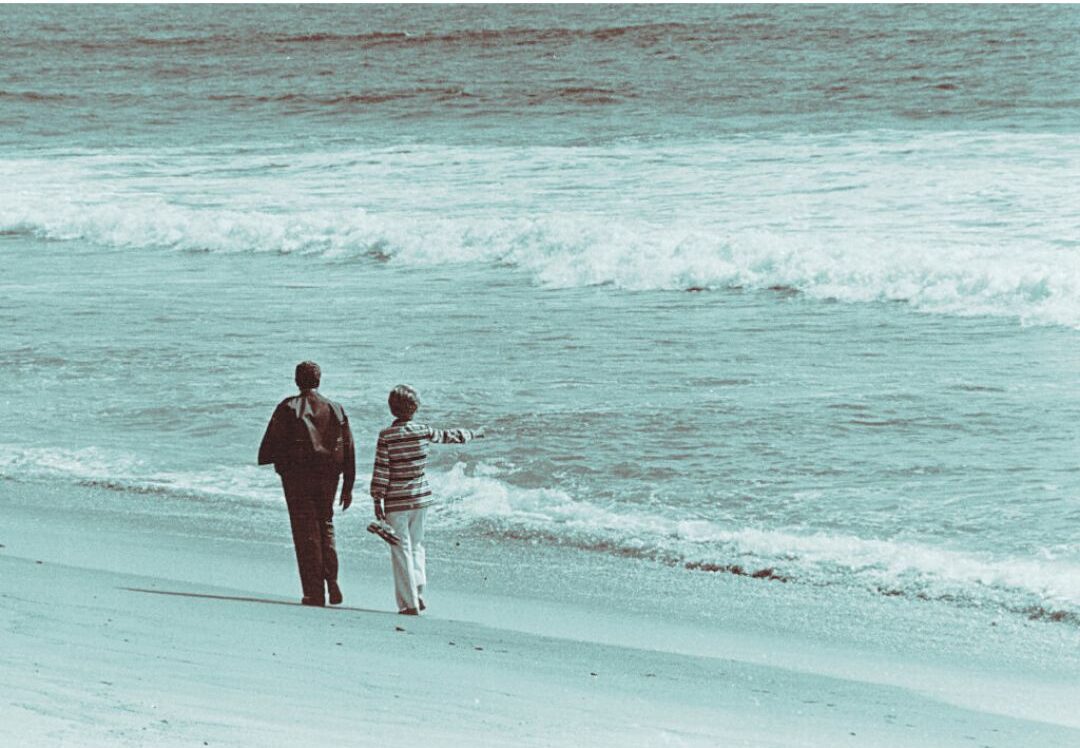The Loom of Time is a fascinating book, a work equally of journalistic reportage, travel writing, history, and unconventional geopolitical analysis reminiscent in some ways of George Kennan’s writings at the beginning of the Cold War. Robert Kaplan holds an endowed chair in geopolitics at the Foreign Policy Research Institute and was for three decades a foreign correspondent for the Atlantic. He has served on the Pentagon’s Defense Policy Board and the Chief of Naval Operations’ Executive Panel. Kaplan is also the author of twenty-two books and appears to have traveled nearly everywhere in the world, his experience of which is vast. Now in his early seventies, he concludes that “the world today is fairer and more human, but less interesting.” Critics of American foreign policy and military adventurism over the past forty years may remember him best for his having supported, and indeed urged, President George W. Bush’s invasion of Iraq in 2003. Since then, he has regretted that support—regretted it so deeply, in fact, that he required medical attention to allow him to reconcile himself with his conscience for years afterward. Today, his view of international policy, the world in the twenty-first century, and indeed of history itself is the diametrical opposite of Western officialdom’s, America’s especially.
It would be an exaggeration, perhaps, to say that Kaplan does not believe in historical progress, but he certainly is no believer in an “end to history,” whether triumphalist or otherwise. Rather, he argues that history is made in the way that Penelope worked at her loom while she waited twenty years for the return of Odysseus, weaving different patterns each day and unraveling them at night, always in the same manner. In this way, “Penelope’s labors, according to [Arnold J.] Toynbee’s interpretation, are not ‘unbearable,’ since each day she is closer to being reunited with her husband, who eventually does return home. The same goes for what Toynbee calls the ‘mightier weaver,’ who suggests the progress of civilizations themselves.” Of the three rules that Kaplan lays down with confidence, the first is borrowed from Spengler: civilizations begin in the desert and end in materialism. The second is that history cycles between empire and anarchy, with variations that may—or may not—represent what historians might call progress. The third is that, as Kaplan says in speaking of Syria and Iraq, “Anarchy [lies] hidden under the carapace of tyranny.”
A maxim, as distinct from a rule, of Kaplan’s is that “in geopolitics and the understanding of our world, the most powerful tool is imagination.” Imagination, of course, is precisely what postmodern Western elites lack, along with the wisdom that previous ages succeeded in combining with intelligence, knowledge, and historical perspective. One of the many virtues of The Loom of Time is Kaplan’s success in putting Western society, past and present, in historical and cultural perspective. The world is a vastly more complex place than modern “leaders” and the Western political classes generally know and understand, owing to their ahistorical thinking, their idealism and susceptibility to ideological constructions, their obsession with what they call “democracy,” their consequent refusal to concede that any other form of government and society is humanly acceptable, realistic, or practical, and their conviction that the proper business of government everywhere is to change cultures outright. In respect of the latter Kaplan quotes Ortega y Gasset: “Breaking the continuity with the past, wanting to begin again, is a lowering of man and a plagiarism of the orangutan.” He adds: “Precisely because a long memory is given to man, to reject that godsend means to reduce man to the level of the beasts. Never was this truer than in some of the arguments put forward about remaking Syria, as well as remaking Iraq and Libya.”
The modern West since World War II has consistently felt an irrational, unreasonable, unhistorical, and neurotic repugnance for all empires, generated chiefly by an unwarranted sense of historical guilt regarding its own imperial past, refusing to recognize the truth by which it used to justify itself while its own empires remained in existence: that empire is the way civilization spreads. Yet many a writer, many a historian long before Robert Kaplan has described empire as that form of government to which civilization has regularly reverted by default. Kaplan himself underscores the benefits, the appropriateness, and the popularity of empire the world over, according to circumstance. Thus he claims that Syria and Iraq were always happier as distant parts of an empire than they have been as modern states. Whereas present-day writers and politicians deplore the fact that Syria today remains something less than an actual state, Kaplan observes that Syrians have never really wanted borders at all but rather a sovereign at once benign and distant, as was the case under the Ottoman Empire. And so, “Given our limitations, we have no solution for Syria. We never had.”
Another country difficult to categorize in Western political terms is Ethiopia, currently at war with Tigray, which one specialist in the region described to Kaplan as being “an empire, not an artificial state like Libya or Syria . . . it is more than a state rather than less of one. And the empire is now in the midst of self-decolonization. Get ready for five new countries in the Horn of Africa,” the achievement of a single federalized state being an impossibility. Ethiopia, Kaplan says, is emblematic of the Greater Middle East, an imperial world forever in a state of crumbling, owing partly to its rugged and isolating landscape: another example of Kaplan’s thesis that geography is more determinative than political ideas. Beyond that, “the record is clear: economic and political development,” encouraged and indeed insisted upon by Western donors, as in Ethiopia, “can feed nationalism and tribalism. This is especially true where there are difficult-to-gratify expectations, with European and Ottoman history offering prominent examples.”
The social and political history of the Greater Middle East—what we call the Middle East and Central Asia—is the story of how modernization has promoted the removal of the huge rural peasant majorities in its constituent states and regions to the cities, transformed by their consequent growth into vast metropolises where numerous tribal cultures have been boiled down into culturally uniform and characterless masses, deprived of their history and traditions and simmering with discontent, rage, and resentment, highly flammable and primed for revolt and revolution. And when riot and revolution break out, official Washington can only stand amazed, disappointed, and appalled.
Unlike China, which Kaplan views as “consciously realistic, embracing stability over anarchy”—an attitude exemplified by the many commercial deals Beijing has made with Afghanistan, its lavish purchase of Saudi oil, and its developmental partnership with that country, all of it unaccompanied by moral lectures—America’s governing class is wildly, and stubbornly, unrealistic. The United States, one Saudi notable observed to Kaplan, not only wants particular results in the program of modernization but also insists upon particular means to achieve them. Another complained, in reference to the Americans’ demands that Saudi Arabia respect gay and lesbian rights, that “the United States is applying the latest revolutionary conditions—absent even in the West until a short time ago—as a way to judge everybody else.” Kaplan has a phrase to describe such behavior. He calls it interventionism as isolationism, an expression of a narrow, shallow, and naïve provincialism that always understands international conflicts in terms of heroes versus villains, whereas the Middle East views them as a matter of villains versus villains.
Be that as it may, it begins to seem entirely possible that the United States could become in time—and sooner perhaps than later—yet another example of a major world empire succumbing to the forces of entropy in accordance with Robert Kaplan’s assertion that “states and empires weaken and collapse when their elites fall into division,” as has been demonstrably happening in America since the 1930s. This trend has accelerated to the point where, in the early twenty-first century, the two national parties confront each other with greater ill will and suspicion than they do the governments of many foreign countries. In the United States, the polarization of political thought, degraded by the Democratic Party and the wider left into a crude and simplistic ideology, is the principal cause behind this, but the role played by the geographical factor that Kaplan emphasizes is also discernible in the process.
While the drafters of the U.S. Constitution took due care in specifying the terms under which new states may be accepted into the Union, the United States since 1787–89 has expanded to a continental colossus composed of fifty states that seems to have developed, as was said of the British Empire, in a prolonged fit of absence of mind—or, perhaps, to put it more accurately, in a series of ad hoc decisions taken without consideration of, or reference to, any imagined coherent design with regard to what a future nation thus assembled would look like, if indeed the result could be described as a true nation at all in the historical sense.
From the early nineteenth century forward, Washington’s sole criteria in developing its expansionist policies have been the achievement of sheer size and the realization of its ambition to extend the country from coast to coast at the expense of Mexico, Great Britain, and Russia, without care for the social, cultural, and political implications of incorporating into the polity northern Mexico and the Indian nations, later certain Pacific islands, and subsequently—through immigration rather than expropriation— millions of alien people from everywhere in the world with their various religions and cultures, many of them incompatible with and some actually hostile to the existing population and its manners and mores. The most blatant example of this negligence— assuming it to be simple laxity rather than part of a politically motivated program for the demographic, cultural, and political transformation of the United States—is also the most recent one: the Biden administration’s adoption on coming to office of a de facto policy of open borders that, in three short years, has allowed the invasion of the country by at least six million illegal migrants, virtually unquestioned and nearly always unvetted, across the southern border.
Washington has created and encouraged the sheerest anarchy within the borders of the latest and most powerful empire in history, but an empire that is also, when viewed honestly and empirically, a rapidly dissolving one with a divided, demoralized, and imploding nation at its center. Three decades ago, the journalist and political theorist Samuel T. Francis—a man of unflinching historical imagination—identified and analyzed the development of what he called “anarcho-tyranny” in the United States—a phenomenon that has become increasingly apparent since his death in 2005 within the borders of the country whose ruling class is fond of referring to it as the “exceptional nation.” Thus, what was previously unimaginable may now actually be occurring in the United States of America. Meanwhile, Robert Kaplan can imagine another event— currently unimaginable by anyone else— that might happen, and relatively soon at that, over seven thousand miles to the east of it:
After half a century of darkness, we could be at the beginning of the end. Just as the Islamic Revolution saw power transfer relatively seamlessly from the shah to the mullahs, Iran could see another transfer of power just as dramatic. Iran may be geopolitically coherent enough to avoid the chaos that accompanied the yearnings for democracy in such an artificially drawn state as Iraq next door. Don’t be cynical about the prospects for Iranian democracy. . . . Iran harbors more human potential than perhaps any civilization on earth.
It is entirely reasonable to wonder whether, should Iran ever succeed in transforming itself into a democratic republic, America would by that time remain an empire, or even the coherent and more or less united nation we know today.















